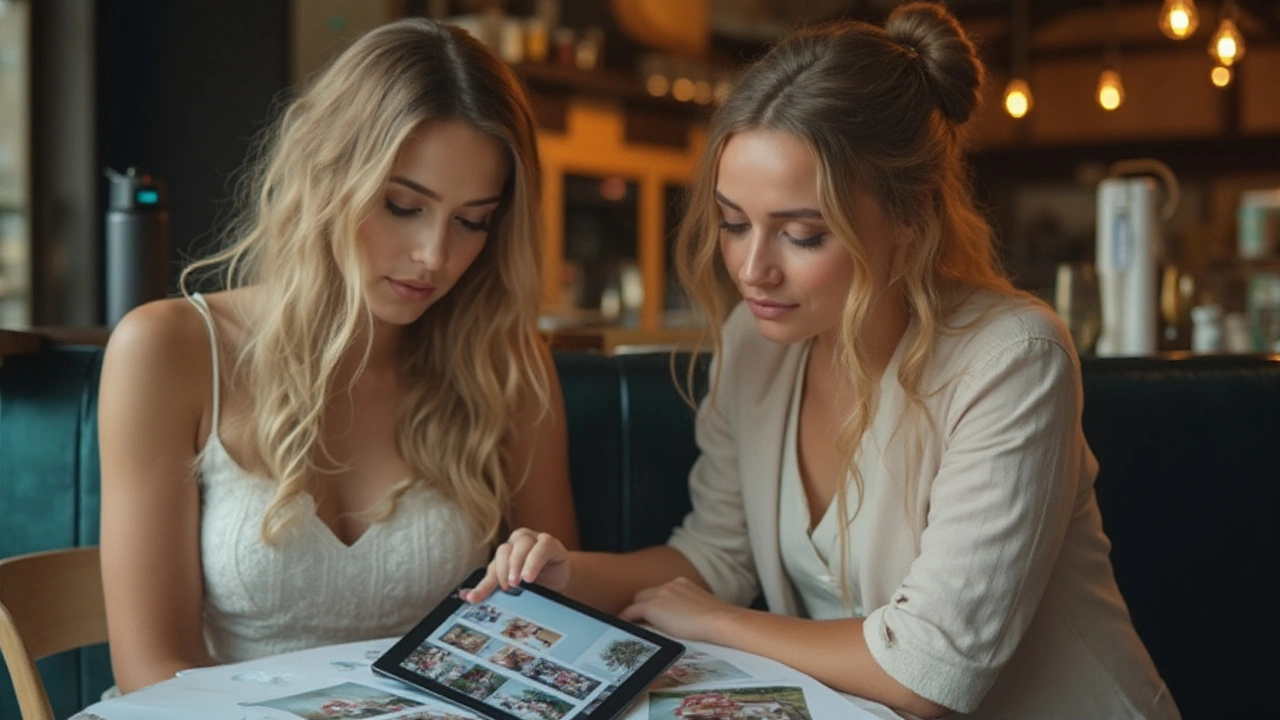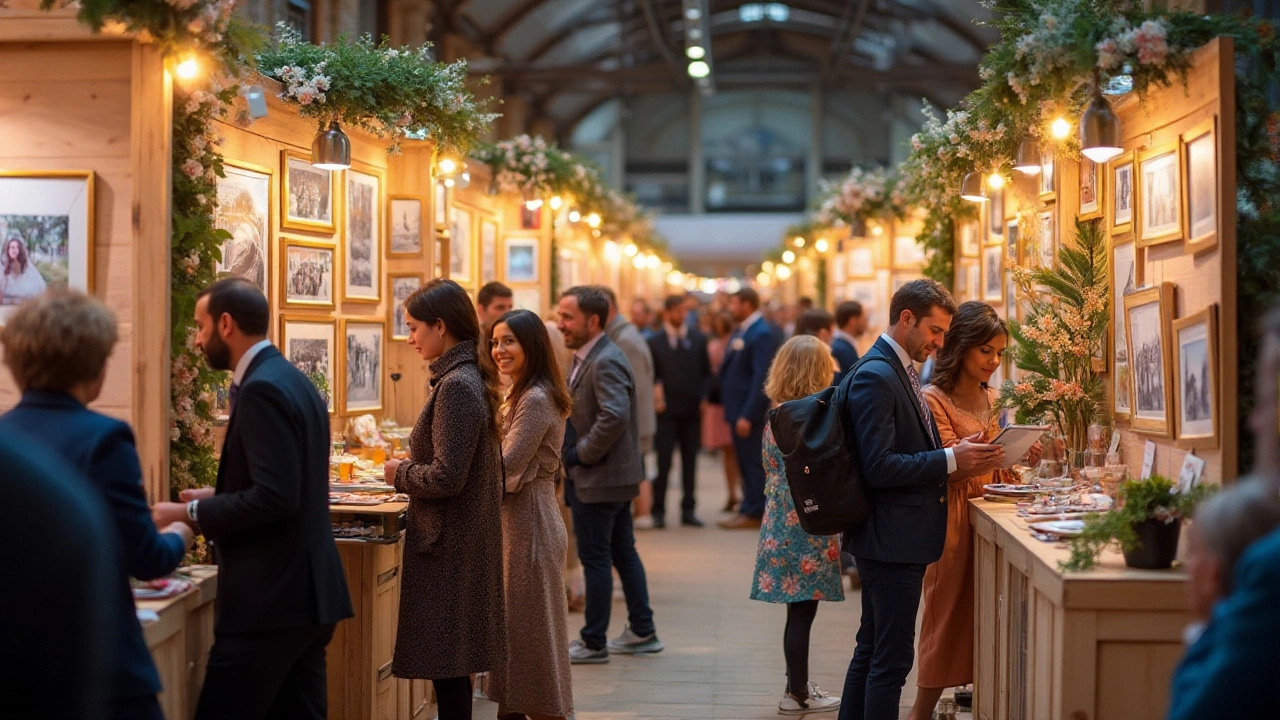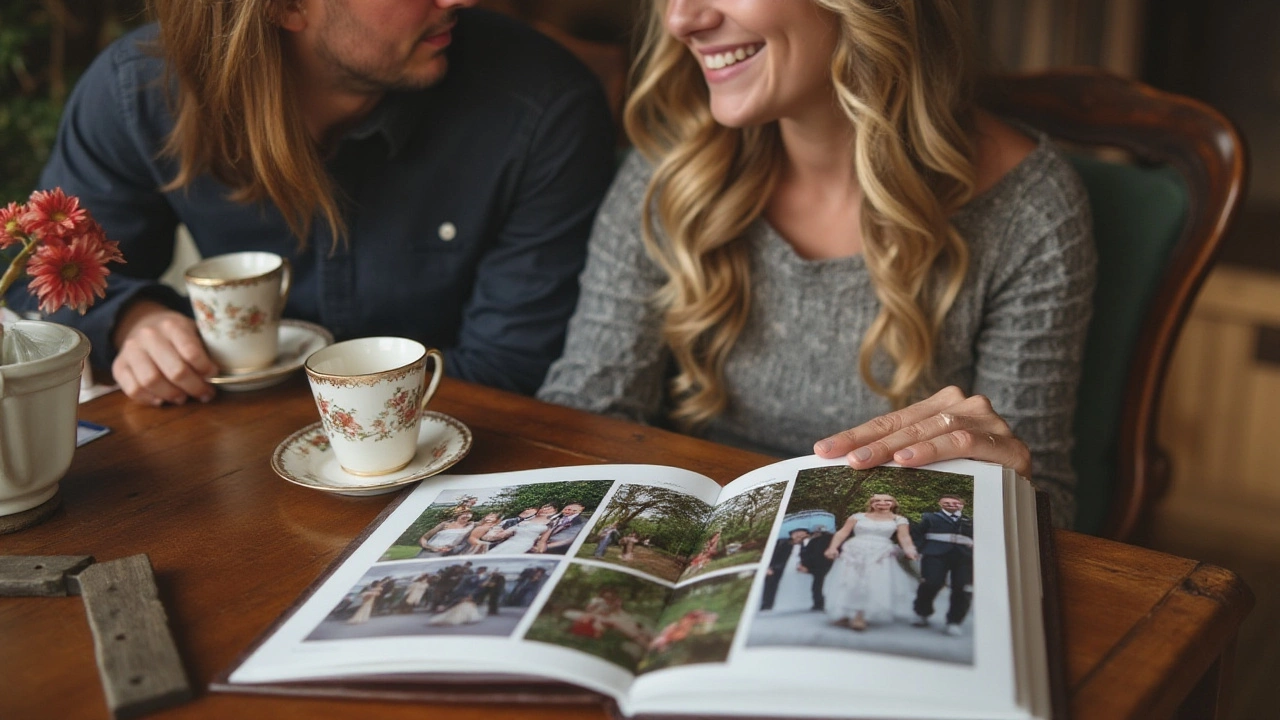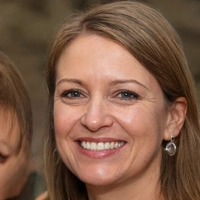Your wedding day is arguably one of the most significant events of your life, filled with moments you’ll want to cherish forever. Capturing these memories requires a skilled photographer who not only has a remarkable eye for detail but also resonates with your personal vision.
Starting the search for the ideal photographer can seem daunting with so many options available. However, by breaking down the process into manageable parts, you can find someone whose work you'll cherish for years to come. In this guide, we’ll explore key factors to consider and tips to help you make an informed decision about who will capture the magic of your special day.
- Understanding Photography Styles
- Setting Your Photography Budget
- Research and Recommendations
- Meeting and Communicating with Photographers
- Reviewing Portfolios and Test Shoots
- Finalizing Your Choice
Understanding Photography Styles
The world of wedding photography is brimming with diverse styles, each offering a unique perspective to capture the essence of your special day. Choosing a style that aligns with your vision is crucial as it will dictate how your memories are framed for posterity. The decision is not just about what's trending but should reflect your personality and the emotions you wish to convey in your album.
One popular choice is the classic or traditional style, often characterized by posed photographs and formal compositions. These photos are timeless, focusing on key moments and family portraits. Although it might seem staged, photographers adept in this style ensure each image is elegantly crafted, reminiscent of the stately wedding albums of the past. If you're keen on capturing the elegance and formality of the occasion, this might be the style for you. Conversely, documentary or reportage photography is an unposed and spontaneous style, telling the story of your day as it unfolds naturally. This approach focuses on capturing candid moments, emphasizing authenticity and emotion – truly capturing the spirit of the day.
Wedding photographer enthusiasts increasingly lean towards the artistic or creative styles, where photographers infuse artistic elements into their work. This could mean using inventive angles, creative lighting, or even experimental editing techniques. Couples who are drawn to art and expression might find their match with a photographer specializing in this style. It’s about weaving an element of the unexpected into your wedding narrative. Perhaps the most versatile is the contemporary style, blending elements from various photographic methods. It offers creative freedom to the photographer and can result in a varied and dynamic photo collection. As a couple, discussing specific elements you like with your photographer can help in tailoring a unique style that fits your day perfectly.
In today’s digital world, some photographers also incorporate lifestyle photography. This style is all about capturing natural, mostly unposed pictures conveying everyday moments with artistic flair. Great for couples who wish to tell a story through their wedding pictures ensuring a warm and natural feel. Photography styles can sometimes amalgamate, with photographers using elements from multiple styles to create a bespoke collection. An essential part of this journey is communication. Sharing your personal style and interests ensures that the photographer can reflect that in their work.
“Photography is the story I fail to put into words.” — Destin Sparks
Whether you prefer traditional elegance, candid narratives, artistic interpretations, or a modern mix, understanding these styles before you lace up your shoes and walk down the aisle is vital. Often, reviewing full wedding albums rather than highlights can help determine a photographer’s consistency in any chosen style. Discussing what resonates with you when reviewing their portfolio also offers invaluable insights into what you can expect. It's these vivid memories immortalized in time that you’ll treasure forever. Consider what emotions you want these photos to evoke each time you look at them, and let that guide you towards the right style.
Setting Your Photography Budget
When planning a wedding, the guest list and venue often dominate initial discussions, but selecting the right wedding photographer is just as paramount. Not only do you want a photographer who fits your style and vision, but it's equally important to ensure they fit your budget. Establishing a clear photography budget at the onset can prevent potential financial strain later on. Wedding photography costs can vary widely, from a modest charge for an up-and-coming professional to premium pricing for a seasoned and in-demand photographer. The cost often hinges on several factors, including time spent on shooting, editing, and the experience level of the photographer. As a guideline, couples typically allocate about 10-15% of their total wedding budget to photography.
Before setting a budget, it’s important to understand what different pricing tiers offer. When comparing packages, be aware that less expensive options might cover only the basics, often encompassing a limited number of shooting hours and high-resolution digital files. On the higher end, you might find comprehensive packages that include anything from pre-wedding shoots to full-day coverage, along with hand-crafted albums and special prints. Many couples believe that cutting corners here could lead to regret, considering that photographs offer a perpetual reminder of the day. As one bride noted, "Investing in a good photographer was one of the best decisions for our wedding. Looking back at the pictures, we relive the day over and over."
When determining your budget, it’s essential to research the average costs within your region. For instance, in New Zealand, wedding photography pricing can average between NZD $2,000 to $5,000 for quality services, but it can climb higher depending on the photographer’s notoriety and the services included in the package. Remember that prices can also rise steeply in larger urban areas compared to more rural settings. Some photographers may also offer payment plans or discounts if booked during off-peak seasons, so it's worth asking. Additionally, deciding if you need a second shooter or additional services can affect costs, but offers redundancy and coverage that could be invaluable.
Establishing a clearly defined budget helps in elimination during your photographer search. As you receive quotes from professionals, make sure you evaluate what each package includes to ensure you’re comparing like-for-like services. Review any additional pricing that might be applicable for travel or special requests. It’s also vital to inquire about any forthcoming workshops or promotions, as photographers sometimes offer reduced rates in such instances.
To better visualize where your budget stands amidst other wedding expenses, you might want to compile a table of distribution:
| Expense | Percentage of Total Budget |
|---|---|
| Venue | 40% |
| Catering | 25% |
| Photography | 10-15% |
| Apparel | 10% |
| Others | 15% |
Ultimately, setting your photography budget is not just about number-crunching but about prioritizing what matters most to you on your special day. Your personal priorities will dictate these choices, whether it’s splurging for the extra glamour of a top-notch photographer or managing these expenditures to allow room for other desires. Understanding your limits, conducting thorough research, and communicating openly with potential photographers will help pave the way for an informed and satisfying selection process.

Research and Recommendations
When it comes to selecting a wedding photographer, diving into a well of recommendations and conducting thorough research is often the cornerstone of a successful match. In today's digital world, soon-to-be-married couples have a treasure trove of resources at their fingertips. Starting with online platforms like Instagram and Pinterest can provide a visual feast while helping you identify the style that resonates with you. Hashtags such as #weddingphotography or #yourlocalevent (e.g., #Aucklandweddings) can uncover portfolios that are both local and aspirational. Wedding blogs and dedicated photography forums also serve as rich sources of inspiration and insight, offering real-world reviews and images from couples who've previously tied the knot.
A significant part of research involves tapping into your personal network of friends and family. Personal referrals can be a game-changer as they come with firsthand experience, and often, candid accounts of how photographer interactions unfolded on the actual day. Don't hesitate to ask about specific details like punctuality, ease of communication, and the ability to blend into the backdrop of the event. This 'blend-in' factor is key, as a good photographer will capture natural moments without being overtly intrusive.
It’s essential to build a shortlist of photographers based on both style compatibility and logistical factors such as availability and budget. Visit local wedding expos if possible; these are not just great for direct interactions, but also offer opportunities to view multiple portfolios in one day. Remember, it's less about ticking boxes and more about feeling connected to both the photographer’s work and persona. Many couples find it valuable to arrange a pre-wedding shoot or engagement session. This might seem like an extra step, but it’s an efficient way to test the waters, so to speak. It familiarizes both parties with each other's styles and comfort levels, and might ultimately lead to the perfect choice.
"Research and recommendations are crucial when choosing a wedding photographer. It’s much more than just finding someone who can take a good photo; it’s about finding someone who fits perfectly with your personality and big-day expectations." – Kate Isaac, Editor at Modern Wedding Magazine
Public forums dedicated to wedding planning, like WeddingWire or The Knot, can also be invaluable during this phase. These platforms allow users to leave reviews and ratings, complete with personal anecdotes that may uncover details you hadn't considered before. Be sure to pay attention to feedback about personality; you could find a photographer with an impeccable portfolio, but if the interaction is stiff or uncomfortable, those emotions can translate into the photos.
Utilizing Social Proof
| Platform | Purpose | Usage Rate |
|---|---|---|
| Visual inspiration and portfolio browsing | 80% | |
| Facebook Groups | Community advice and recommendations | 60% |
| WeddingWire | Professional reviews and ratings | 75% |
According to recent surveys, approximately 75% of couples rely on online reviews and community feedback to guide their photographer selection process. The importance of this cannot be understated, as word-of-mouth testimonials offer perspectives that more formal portfolios cannot capture. In summary, combining digital resources with personal interactions and recommendations helps build a comprehensive picture of what to expect, narrowing down your options until the perfect match is right in front of you.
Meeting and Communicating with Photographers
When it comes to finding the perfect wedding photographer for your celebration, meeting and communicating effectively with potential candidates is pivotal. This phase goes beyond viewing portfolios and reading reviews; it's about gauging the personality behind the lens and determining how well they sync with your wedding vision. Begin by arranging in-person meetings or virtual calls if distance poses a challenge. Such encounters provide invaluable insights into the photographer's professionalism and whether their energy resonates with yours. During these interactions, note how attentive they are to your ideas and how effectively they suggest concepts that align with your theme.
A great starting point is establishing a clear line of questions to ask your potential photographers. Consider questions about their previous experience with weddings similar to yours, their approach to capturing candid moments as opposed to traditional poses, and how they handle unforeseen challenges—like sudden weather changes or unexpected timelines. By engaging in such dialogue, you're providing them an opportunity to showcase their expertise and think on their feet. As Vanessa Joy, a renowned wedding photographer, often shares in her workshops, "A successful wedding shoot begins with understanding the couple's story and vision."
Taking this into account, ensure your photographer can articulate how they plan to narrate your personal story through photographs.Communication isn't solely verbal; it extends to observing body language and emotional intelligence. A skilled wedding photographer should possess a calming presence, especially given the high-stress nature of wedding days. Does the photographer maintain eye contact? Do they appear genuinely enthusiastic about your unique ideas? Are they adaptable and eager to incorporate feedback? These are vital attributes to assess. Effective communication engenders trust, the cornerstone of any fruitful collaboration. You'll want to feel at ease, knowing they comprehend your vision and can execute it proficiently. An important tip: before finalizing any contracts, ensure all critical discussions and agreements are documented in writing to circumvent miscommunications or unmet expectations in the future.
Advanced preparation for your meetings can further enhance communication. Prepare a concise list of must-have shots and any specific cultural traditions you'd like documented. Discussing these details with your photographer can help them prepare and brainstorm creative ways to capture these moments. An adept photographer will also probe you with questions to better understand your preferred styles, such as whether you're drawn to vibrant colors or muted tones, candid spontaneity, or choreographed elegance. This two-way communication cultivates rapport and deepens the photographer’s understanding of your priorities.
Finally, don't underestimate the power of a quick research dive into their social media presence and digital footprint. This can offer glimpses into their working style and personal ethos. Observing their online interactions with past clients and their responses to varying feedback can reveal a lot about their professionalism and dedication to their craft. Armed with this knowledge, backed by clear conversation and shared expectations, you'll be positioned to make a confident decision when choosing your wedding photographer.

Reviewing Portfolios and Test Shoots
When embarking on the journey to select your ideal wedding photographer, one of the most important steps is reviewing portfolios and conducting test shoots. Portfolios offer a window into a photographer's work, showcasing their ability to capture emotion, detail, and the essence of a wedding. It's crucial to explore a variety of options. Don't just glance through a few cherry-picked shots; request to see entire wedding albums. This will allow you to understand how they capture different aspects of a wedding day from start to finish.
While reviewing these portfolios, pay close attention to the photographer's versatility. Do they excel in different lighting conditions, such as bright daylight as well as dimly lit evening receptions? Look for consistency in quality across images, which speaks volumes about a photographer's skill set. You should also note their ability to capture candid moments, as these often hold some of the most cherished memories.
Conducting a test shoot is an invaluable step in the photographer selection process, providing a firsthand experience of their working style. It's a chance to gauge their professionalism, creative direction, and how comfortable they make you feel during the shoot. A test shoot can be as simple as an engagement session, which gives both parties a chance to get acquainted in a relaxed setting.
According to renowned wedding photographer Jasmine Star, "A great photographer doesn't just take pictures, they make the couple feel comfortable and capture them being truly themselves."
In preparing for a test shoot, discuss your vision with the photographer, including specific poses or moments you wish to capture. This is an opportunity to see if they can adapt to your style and requests. After the shoot, review the test images diligently. Do the shots resonate with you emotionally? Are they aligned with what you discussed? This is a chance to ensure there are no surprises in your expectations versus reality on the big day.
For more analytical decision-making, you could employ a simple rating system to evaluate portfolios and test shoots. Create a table to assess criteria such as consistency, creativity, lighting adaptability, and client interaction.
| Criteria | Score (1-10) |
|---|---|
| Consistency | 8 |
| Creativity | 9 |
| Lighting Adaptability | 7 |
| Client Interaction | 10 |
Remember, the test shoot is as much about the photographer understanding your chemistry as it is about you assessing their technical ability. A harmonious relationship with your photographer can make all the difference in capturing the joy of your wedding day. Keep an open mind and heart when exploring these portfolios and enjoy the successful outcome of finding someone who can tell your story through their lens.
Finalizing Your Choice
You've done the groundwork, reviewed multiple portfolios, and even met with a few photographers who caught your eye. Now comes the crucial step of making your final decision about your wedding photographer. This step can be filled with both excitement and stress as you weigh different factors to ensure that your memories are captured in the way you've always dreamt of. One key aspect is aligning the photographer's timeline with your wedding day's schedule. A photographer who can seamlessly integrate their shooting schedule with your plans is ideal. This minimizes disruptions and ensures that even spontaneous magical moments are preserved.
Before sending a confirmation, double-check to see if your photographers are clear on the deliverables. Are there specific shots or events you definitely want included? Communicate these needs directly. Another factor to take into account is arranging a second shooter. Some wedding photography packages include an assistant photographer; this can guarantee that nothing goes undocumented during your event. From different angles of your vows to candid moments of your guests, having two perspectives is often invaluable.
You're now at a point where a contract is likely laid out for your signature. Read every line carefully, focusing on sections discussing copyrights and usage of images afterwards. Consult with someone knowledgeable about contracts if needed.
"Your wedding photos should tell the story of the most important day of your life in a way that brings a smile to your face every time you share them with friends and family," says renowned wedding photographer, Jasmine Star.Be sure to discuss any and all details that are important to you and your partner to avoid any surprises later on. This is particularly necessary when discussing the time of image delivery post-event, as the anticipation can be overwhelming.
For those who value uniqueness or artistic flair, discussing post-processing options can also be critical. Some photographers offer tiered packages with varying styles, such as digital art, classic, or reportage styles. Explore if your chosen one offers something extra, like a post-wedding photo session or an album compilation. Ignoring the potential of technology would not be wise; inquire about digital and cloud backup options. It's always a relief to know your digital files are secure and stored safely beyond physical copies.
If you’re on the fence between two different photographers, try to lean on the recommendation of people you trust who have worked with them before. Among many choices, often a past client’s glowing testimonial can tip the scales. Use this insight purposefully, much like matchmaking. Choosing who captures your memories isn't just contracting a service; it’s inviting someone to share an intimate part of your life. So choose someone whose energy and presence enriches rather than detracts from your special day. Trust your gut, sign that contract, and focus on making the most of this experience.

